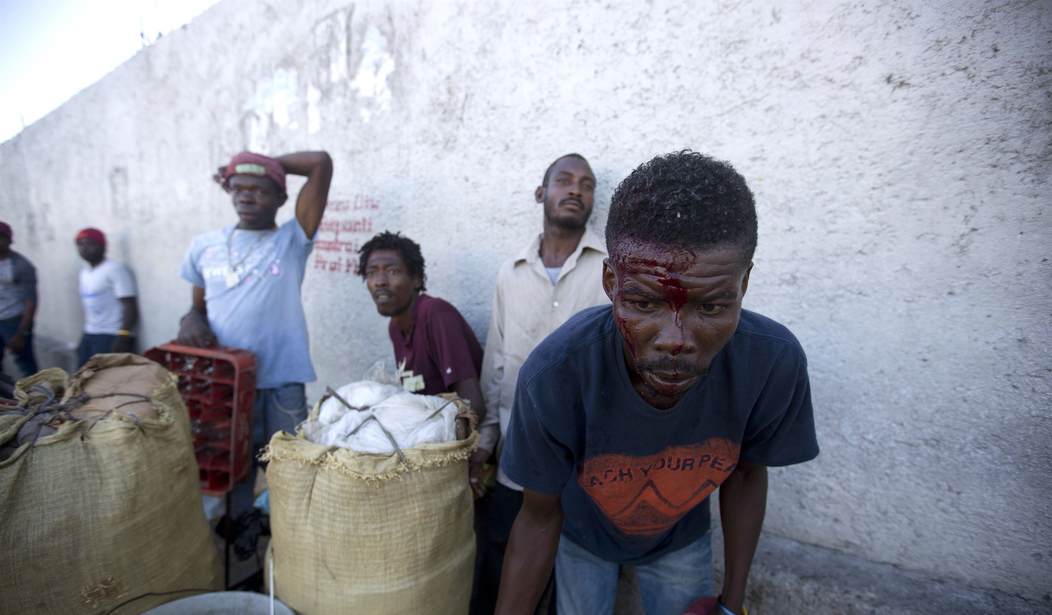Kofi Annan once said, "Often we mistake stability, in terms of security and economic activity, to mean a country is doing well. We forget the third and important pillar: rule of law and respect for human rights."
I was reminded of this quote following the recent shocking assassination of Haitian President Jovenel Moise, which is the culmination of escalating violence enabled in part by the departure of the United Nations Stabilization Mission in Haiti in October of 2017. Since that time, the gangs in Haiti have grown in size, violence and access to military-grade weapons. The gangs overwhelmed the flagging police force on numerous occasions, stealing their weapons and armored vehicles, and murdering and kidnapping the citizens of Haiti with impunity.
The government of Haiti, already destabilized by the dissolution of Parliament in January of 2020, has been entirely unable to restore the rule of law. This instability was exacerbated by the death of the leader of the Supreme Court, the first in the line of succession to the President, just before the President's death. Furthermore, the Prime Minister, appointed after Parliament's dissolution, reportedly has yet to be constitutionally confirmed. This leaves Haiti with no apparent constitutionally supported way forward to be properly self-governed until presidential elections are held in the fall.
The first lady, who sustained injuries in the attack, stated from her Miami hospital bed that her husband's political enemies orchestrated the assassination. This fracture in the government reflects the current state of division that lies within the country. One of the opposing members, Jean-Bertrand Aristide, returned from Cuba following the assassination. His political party, Lavalas, has been frequently implicated in the past as significant disrupters of the Haitian polity.
Recommended
The dramatically increasing violence stands as a counterpoint to the relative peace seen during the United Nations Stabilization Mission in Haiti (MINUSTAH) from 2004 to 2017. Violent crime was kept in check overall during that time. After the departure of the United Nations stabilization force, however, everything changed. Three gang-led massacres occurring in the La Saline, Bel Air, and Cité Soleil suburbs of Port-au-Prince from November 2018 to July 2020 killed 206 civilians, some of whom were beheaded, and many more were injured and raped. During these atrocities, the Haitian police not only didn't intervene, but some reports indicate that they participated. Now, without a functioning government, these gangs proliferate and further degrade the human rights of the general public.
The weaponry that the gangs have at their disposal is stunning. While fully automatic submachine guns are commonplace in Haiti, the gangs now possess Russian-made tripod-mounted, belt-fed medium machine guns. These weapons of war are daunting and carry firepower capable of shredding a vehicle.
The gangs in Haiti are coalescing into larger better-funded organizations that control vast swaths of the country. Now, with better communications and cooperation, they are able to launch more destructive coordinated attacks. As time passes, the ability of the police to neutralize them becomes less and less likely.
The dissolution of the government, the ascendency of the gangs, and the loss of the rule of law combine to threaten the sovereignty of Haiti. Despite the many published opinion pieces calling for the return of theUN stabilization force to prevent the very turmoil that we see presently, the worst-case scenario has happened. I pray it’s not too late to turn the tide, if the UN would finally act.
Clearly, the UN is the appropriate body to stabilize Haiti and restore the rule of law. Article One of the UN's Charter states that "The Purposes of the United Nations are: To maintain international peace and security, and to that end: to take effective collective measures for the prevention and removal of threats to the peace, and for the suppression of acts of aggression or other breaches of the peace, and to bring about by peaceful means, and in conformity with the principles of justice and international law, adjustment or settlement of international disputes or situations which might lead to a breach of the peace…"
The Haitians are our neighbors, and the people of Haiti are suffering greatly under the burden of this tyranny of violence. It is incumbent upon the UN to act quickly and decisively to assist the nation of Haiti in the restoration of its proper sovereignty.
Dr. David Vanderpool is a surgeon and CEO ofLiveBeyond, a humanitarian development organization. He and his wife, Laurie, started LiveBeyond in 2005 to provide healthcare, nutritional support, education and clean water to impoverished communities worldwide, and have worked in Mozambique, Ghana, Honduras, Haiti and Israel. They have lived in Thomazeau, Haiti, full-time for 8 years.

























Join the conversation as a VIP Member